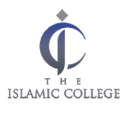HSD316 – Biographical and Narrative Studies
Course Overview
Inorder to determine the extent to which a tradition can be used in Islamic studies, if at all, through the process of two related fields of study: Biographical Studies, which critically examines particular attributes of narrators of traditions in order to determine their trustworthiness; and Narrative Studies, which investigates the chain and text of traditions in order to ascertain their authenticity. This module aims to examine criteria used for ascertaining the authenticity of traditions from both a Biographical and a Narrative point of view; and investigate individual biographies of important narrators and evaluate the different ways in which a tradition can be received and transmitted.
Module Info
- Syllabus
- Outcomes
- Strategy
- Material
sYLLABUS
- What are Biographical and Narrative Studies?
- The Need for Biographical Studies
- Ways of Ascertaining the Trustworthiness of a Narrator
- The Consensus Companions
- Biographical Study of Important Narrators
- Terminology Employed in Biographical Studies
- Classification of Traditions and the Level of their Authenticity
- Terminology Employed in Narrative Studies
- Modes of Receiving and Transmitting a Tradition
Learning Outcomes
Knowledge
On completion of this module, the successful student will be able to:
- Critically write about criteria used for ascertaining the authenticity of traditions. (A1, A2)
- Choose and differentiate an authentic tradition from a dubious one (B1, B3, C1, C6, D2, D6)
- Formulate and define key terms and concepts in Biographical and Narrative Studies. (A1, A5)
Skills
This module will call for the successful student to:
- Propose and use appropriate methodology to critically evaluate traditions reported from the Prophet, the Companions and the Shia Imams. (B1, B3, B6, C1, C5, D5, D6)
Learning, Teaching and Assessment Strategy
Delivery of this module is in the traditional Hawza style, whereby the teacher carefully reads and explains the core text, and discusses areas of particular complexity in more detail. Students are encouraged to examine the text critically and to engage in the discussions. Furthermore, students are expected to discuss material presented in class in their mubāḥathah (study circle) sessions to enhance understanding and retention.
Assessment Strategy
Formative assessment will be by means of discussions, and continuous questioning on the practical and theoretical aspects of the course syllabus. Revision sessions are also arranged that will cover topics in preparation for exams, providing constructive formative feedback to students. Each portfolio assignment is entitled to formative feedback from the module leader before the 10th learning week. Students are required to see the module leader regularly to receive feedback and support with their portfolio work. Additionally, tutorial time and also mubāḥathah enables the module leader to give guidance to students on topics of concern and provide constructive feedback related to portfolio work.
Summative, graded assessment is by portfolio and written examination. The Portfolio will comprise of two assignments about 500 words each (Outcome 4). The 2 hour written examination will take place at the end of the semester (Outcomes 1, 2, 3).
Assessment Weighting
Written examination: 50%
Portfolio: 50%
Learning Material
Core readings
- Al-Subhani, J. (2010). Durus Mujazah fi ‘Ilma al-Rijal wa al-Dirayah. Qum: Al-Mustafa International Translation and Publication Centre.


